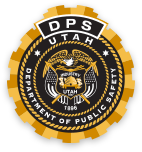Crime Scene Specialist (Basic)
Description:
The Crime Scene Specialist Class is an entry-level course designed to provide the new investigator with correct tools to become familiar with the evaluation, preservation, documentation and collection of commonly encountered physical evidence types. If the student does well in the class and continues to practice these skill sets upon graduation, then they can expect to develop proficiency in crime scene processing.
Since the majority of crime scene work is documentation, this is the focus of the course. As such, the student will be required to bring their own SLR camera, tripod and flash with all necessary attachments. (e.g., sync cord, extra batteries, macro lens, etc…) However, the class does not teach entry-level camera use. We use the Nikon D70, and while most cameras are similar, they are different, and we cannot be expected to know everything about every camera. Hence, the student should be very familiar with their camera, its settings and attachments.
It is recommended that a basic photography course be taken prior to attempting this class. It is further recommended that a student bring a digital SLR camera and laptop to this course to aid in the rapid review and verification of photographs.
Minimum Passing Grade:
There are four written examinations, which are given at the start of each class (0800) in the morning. The student must have a cumulative score of 70% or higher to pass the class and receive credit. There are multiple lab exercises that the student must complete and have instructor verification (signoff). At the end of this course (Friday) the students will assemble into four teams and each team will process a mock crime scene, demonstrating the skills that they have learned and practiced during the week.
Student Expectations:
The student should plan on being very busy and adjust their work schedule to compensate for this class. To do well on the written test, each student will need to study an average of 1-2 hours each night (plus plan on one [night] photography shoot during the week). Optionally, the student may want to practice after class time some of the skills that they learned during the day. This will help the crime scene practical go smoother and lessen the student’s anxieties. Remember to have fun and take full advantage of this time to ask questions of the experts teaching this class and practice your newly learned techniques.
Instructors:
Utah BFS Personnel
Address:
Utah Bureau of Forensic Services
4501 South 2700 West
Salt Lake City, UT 84119
Phone: Lab – 801-393-4549
Fax – 801-393-4574
Email – bosmith@utah.gov
Class to be taught at: SLCC Criminal Justice Lab (POST Building) 410 W. 9800 S., Sandy, UT
- Schedule: Pending
Monday
8:15-9:45 Crime Scene Management
10:00 -12:00 Note taking and Sketching and Exercises
1:00 – 5:00 Collection/Preservation of Physical Evidence (Packaging, Trace, Blood [KM and swabbing], Documentation and collection of firearms and Exercises
Tuesday
8:00 – 8:30 Exam
8:30 – 12:00 Camera Basics and Lab Exercises
1:00—5:00 Crime Scene Photography and Exercises
Wednesday
8:00 – 8:30 Exam
8:30 – 9:30 Review of Photos w/ Class
9:45 – 10:45 Paint
10:45 – 12:00 Fire Debris
1:00 – 1:45 Fibers
1:45 – 5:00 Bloodstain Patterns (Documentation, Photography, etc.) and Exercises
Thursday
8:00 – 8:30 Exam
8:30 – 9:30 Fingerprints
09:45 – 10:45 Physical Development and Lifting of Fingerprints
10:45 – 12:00 Fingerprint Lab
1:00 – 5:00 Footwear/Tire and Exercises
Friday
8:00 – 8:30 Exam
8:30 – 2:00 Crime Scene Practical
2:00 – 5:00Crime Scene Practical Presentations and Reviews
Student Notes:
Cost for course to cover materials is $250.00 payable to Utah Bureau of Forensic Services prior to the first day of class. If you register for both the Basic and Advanced Classes in advance you will receive a discount and can attend both classes for $400.00.
Prerequisites:
1. Submittal of an application and materials fee.
2. A willingness to devote the entire week to the study of crime scene processing is imperative. There is very little resource for makeups, so the student should plan on being at the class for the entire week.
3. A camera (SLR) – not a point and shoot.
Max enrollment: (16)
The cost of the class is $250.00 each or $400.00 for both.
For RSVP, payment and general class information please contact Bo Smith at bosmith@utah.gov or 801-393-4549.
| Course Dates | Location | Time | Status |
| Schedule Pending | |||
